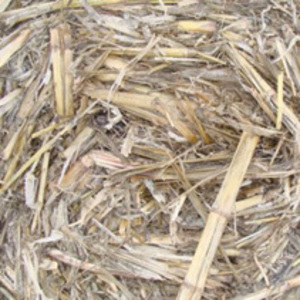Developer of cellulosic project resubmits grant proposal

July 11, 2016
BY Ann Bailey
Pennsylvania-based New Energy Investors has resubmitted a grant request to the North Dakota Agricultural Products Utilization Committee. The resubmitted grant proposal, which will be considered at APUC’s quarterly meeting July 18 in Medora, North Dakota, is for $125,000
New Energy Investors is proposing to build a $150 million cellulosic ethanol plant in the Spiritwood Industrial Park near Jamestown, North Dakota. In May 2016, APUC denied a $225,000 grant submitted by New Energy Investors. The grant would have been matched by a $75,000 grant from the Jamestown/Stutsman Development Corp.
The proposed cellulosic plant would process corn stover and wheat straw into ethanol and lignin. Both biomass materials may be purchased under contract from farmers, said Tom Corle, New Energy Investors founding partner. The proposed ethanol plant would use about 195,000 tons of corn stover and straw annually to produce about 13.5 million gallons of ethanol and 90,000 tons of lignin per year.
Advertisement
The Spiritwood cellulosic ethanol plant would use proprietary technology developed by Inbicon, a subsidiary of Danish energy company DONG Energy A/S. Inbicon, like many investors, has worked on the technology for many years.
Inbicon’s Kalundborg, Denmark, 4-metric ton-per-hour demonstration plant passed 17,000 hours of operation in 2014, using wheat straw, according to the New Energy website. The Inbicon biomass conversion technology combines hydrothermal pretreatment with enzymatic hydrolysis, converting biomass to sugars and clean lignin.
Corle expects groundbreaking on the North Dakota plant to begin in June 2017 with construction completed in spring 2019. The plant gradually will ramp up production during an eight-month period.
Advertisement
Related Stories
Keolis Commuter Services, the Massachusetts Bay Transportation Authority’s operations and maintenance partner for the Commuter Rail, has launched an alternative fuel pilot utilizing renewable diesel for some locomotives.
Virgin Australia and Boeing on May 22 released a report by Pollination on the challenges and opportunities of an International Book and Claim system for sustainable aviation fuel (SAF) accounting.
Chevron U.S.A. Inc. on May 15 filed a notice with the Iowa Workforce Development announcing plans to layoff 70 employees at its Ames, Iowa, location by June 18. The company’s Chevron REG subsidiary is headquartered in Ames.
Luxury North Dakota FBO, Overland Aviation—together with leading independent fuel supplier, Avfuel Corp.— on May 19 announced it accepted a 8,000-gallon delivery of sustainable aviation fuel (SAF) on May 12.
May 21 marks the official launch of the American Alliance for Biomanufacturing (AAB), a new coalition of industry leaders committed to advancing U.S. leadership in biomanufacturing innovation, competitiveness, and resilience.
Upcoming Events










